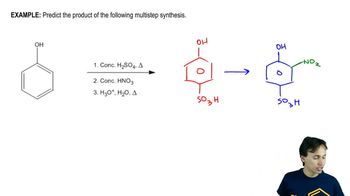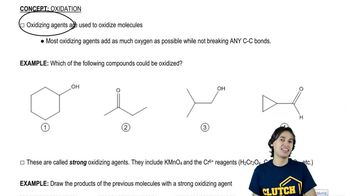Show how each of the following compounds can be prepared, using the given starting material:
f.
 Verified step by step guidance
Verified step by step guidance Verified video answer for a similar problem:
Verified video answer for a similar problem:



 2:12m
2:12mMaster Carbonation of Grignard Reagents with a bite sized video explanation from Johnny
Start learning